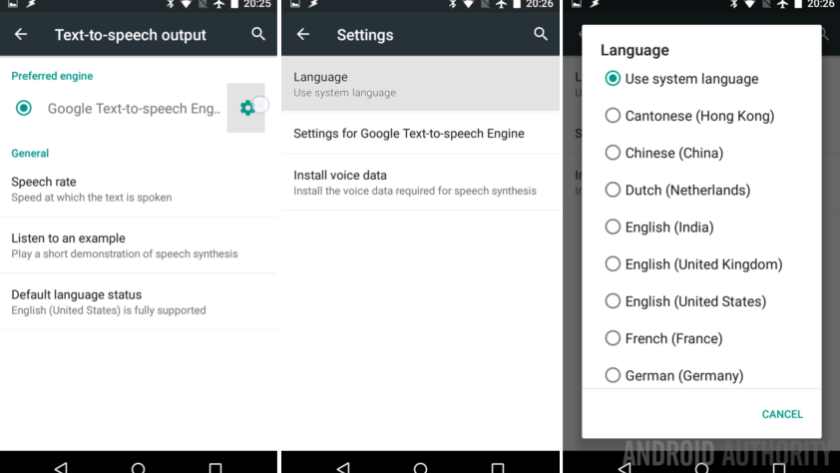Language For Pico Tts Voices
For anyone who is interested I've ported a text-to-speech engine to the Raspberry Pi. Google's Android project includes an offline TTS engine called Pico TTS that they licensed from a company called SVOX but open sourced under the Apache 2 license. It is a good quality, well documented product and is designed to run efficiently on embedded platforms like the Raspberry Pi and your smart phone. I had to do a little hacking to exact it fully from Android and also write a simple demo application to show how it is used so it might be a little rough around the edges but it works and supports several different languages. It is also far nicer to listen to than eSpeak I made a rather poor quality video/presentation to demo it in action which you can see here: You can find the source code on GitHub here: It would be good for someone to try it out and let me know if it works for you. I'm sure many projects could benefit from it. I've also left the code for the Java bindings in (untouched) just in case it could be incorporated into something like Scratch.
Note that the SVOX Classic TTS engine does not collect any data or send them off the. You can change the phone language in Android Settings -> Language. Don't support the TTS Extended interface, therefore they continue to use Pico.

Yggdrasil wrote:Wow, many thanks for this hint and port of the pico speech engine. It's also compilable on other systems and I really like the quality (compared with espeak and festival ). Edit: Ok, this engine isn't better in all cases. I like the voice in short sequences. Long sequences/sentences sounds quite monotone. It is very portable I noticed the core library in the pico/lib directory required exactly zero changes to build for the Raspberry Pi.

The additional C++ bits that wrap around it and extend it took some work but it adds the SSML features. I also added a sample program so there is an example of how to use it.
You get to race on 13 real life tracks taken from the 1999 racing circuit. If you are more into quick races, you can set it up so you skip all the hoopla and just race without qualifying. For the mechanic in your family there is the option of tinkering with your bike. What makes Superbike 2000 so fun is the ability to make the game a real as you desire. If you wish to see what an actual race weekend is like you can set it up so you start racing on Friday and end on Sunday. Game superbike 2001 full version.
Chessmaster 7000 windows 7. I agree the speech isn't perfect to get the very best results you usually need a huge data file with lots of pre-recorded words and phrases which can be hundreds of megabytes if not gigabytes in size. Code: pi$ testtts 'Hello' Pico TTS Test App Input string: 'Hello' Failed to load language Synthesising text. Failed to synth text and then hangs. Any ideas of what could be wrong? Sorry about that, I realised I hard coded to the language data path to './lang/' on line 103 of main.cpp. If you are running it in the pico/tts subdirectory where it is built you should be ok otherwise you might need to modify the path and copy the language data. The test program is hard coded to use the UK English so you will need the en-GB_kh0_sg.bin and en-GB_ta.bin files.
I realise that isn't very convenient, I might look into having a system wide path to install the voice data to allow multiple applications to find and use the same voice data. AutoStatic wrote:Cool but isn't Pico TTS already in Raspbian? I couldn't find any mention of it anywhere online or on this page: So I assume it hasn't already been ported but I could be wrong Added it to the elinux.org Wiki: Doh I completely failed to spot that it already existed as a package pico2wave is easier to use to generate some speech in a file but I'm not sure you can pump the output straight into aplay like my little sample application does. In addition I've ported across the SSML parser and C++ wrapper which might be handy for some people. I think the sample app is still useful but rather than build the core library yourself you could just install the libttspico-utils package Doug.